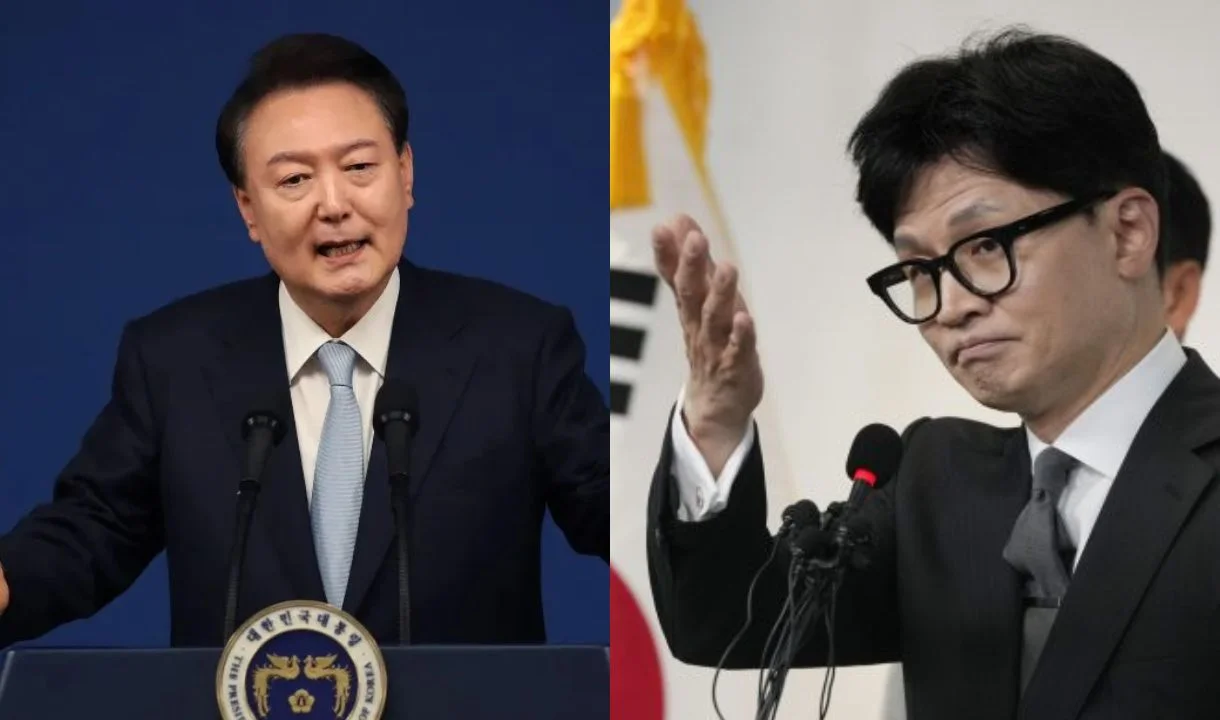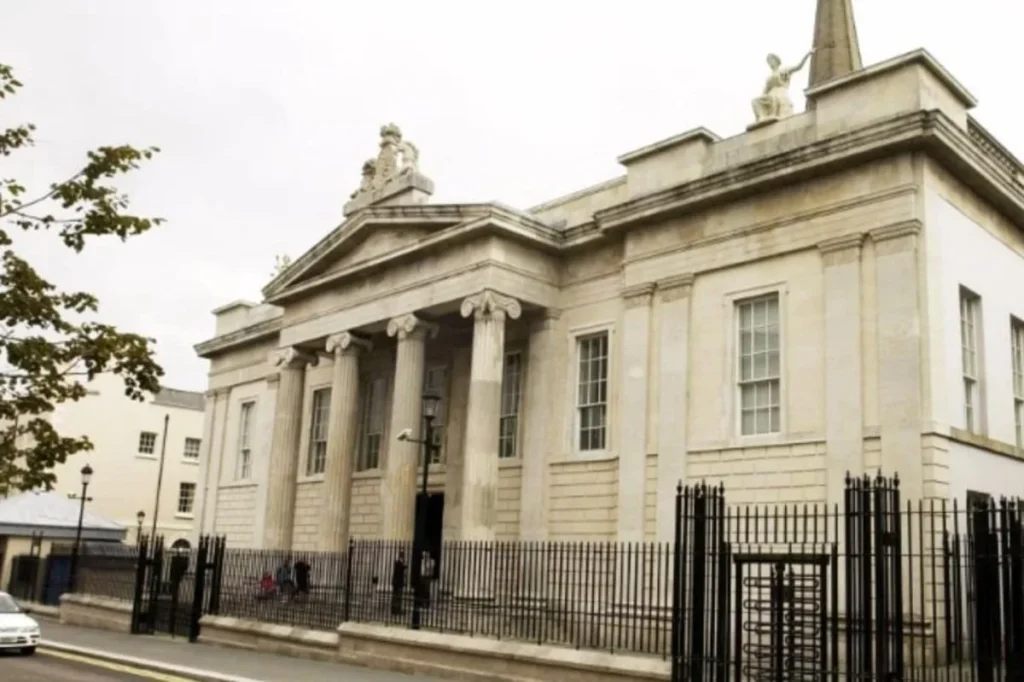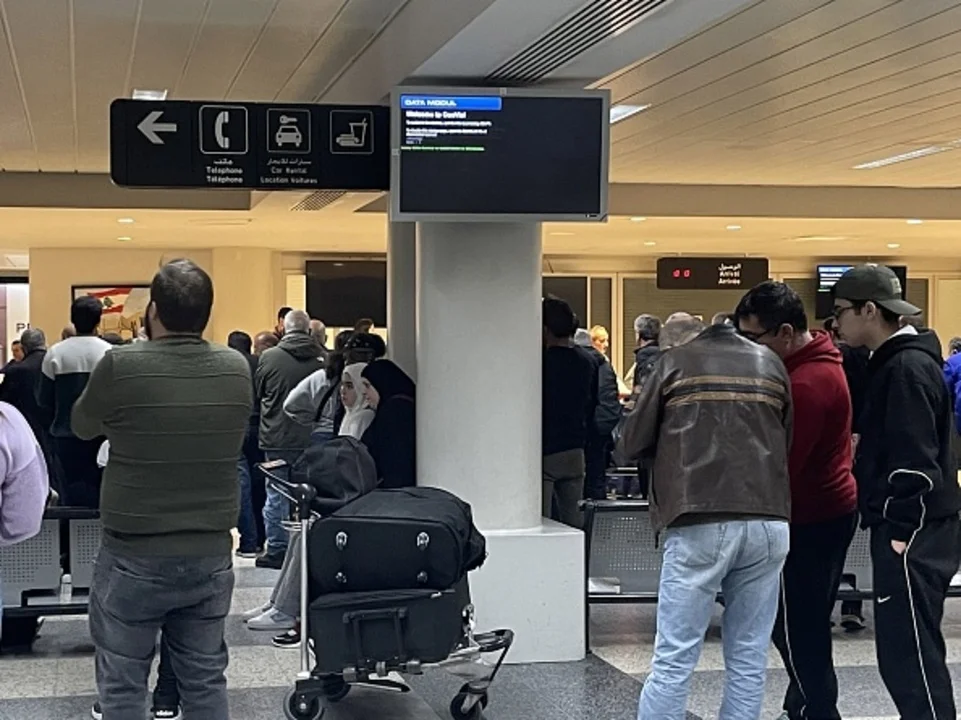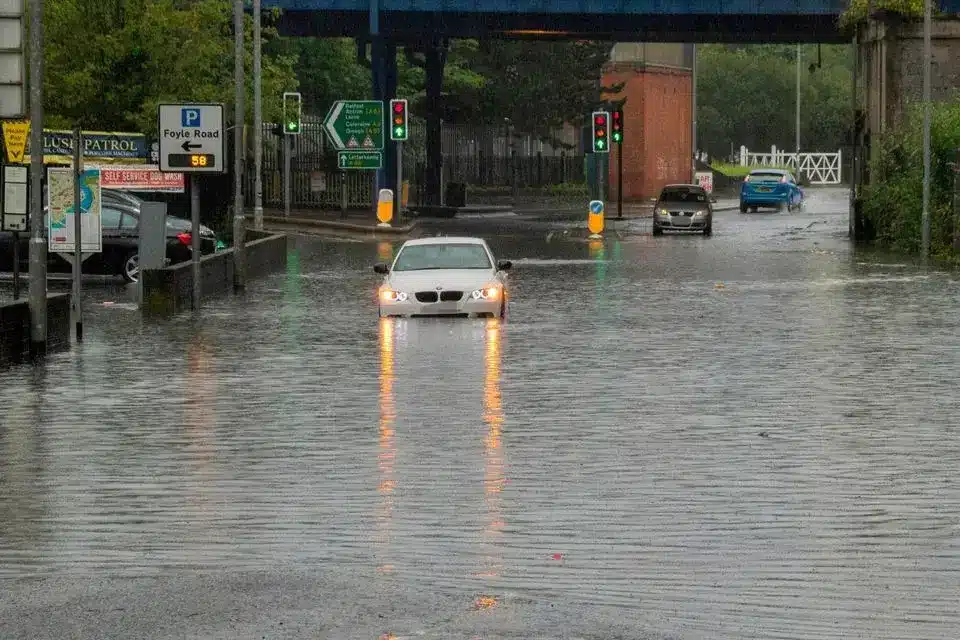Ruling Party Leader Demands Removal of South Korean President

Introduction
South Korea is hit by one of the gravest political crises of recent times where President Yoon Suk Yeol was a key figure in some spectacular fallout. Such declaration of martial law had just thrown the entire nation into turmoil, even met with surprising actions from his own ruling party. The commotion and political turmoil attracted an increased demand for President Yoon’s impeachment, marking a history in South Korean democracy.
The Martial Law Declaration and Public Backlash
What Happened?
Late Tuesday, President Yoon Suk Yeol shocked the nation by imposing martial law in a declared move for the sake of future protection of South Korea from North Korean threats. The National Assembly was locked, with hefty deployments of about 300 soldiers placed inside and helicopters crawling on its roof in attempts to lock down the building.
Public Reaction and Political Fallout:
It triggered thousands of protesting citizens gathering outside parliament, while inside it caused an extraordinary demonstration of lawmakers using makeshift barricades to fend off soldiers. In spite of the chaos, they actually managed to overturn the martial law declaration, sending a clear message that unconstitutional actions will not be tolerated.
| Date | Event |
|---|---|
| Late Tuesday | President Yoon declared martial law, citing North Korea’s threats. |
| Tuesday Night | National Assembly locked down; lawmakers protested and overturned the declaration. |
| Wednesday Morning | Opposition filed an impeachment motion against Yoon. |
| Following Days | Investigations launched into allegations of insurrection and misuse of power. |
Ruling Party’s U-Turn
Han’s Initial Stance
The opposition to the motion to impeach the president was for Han Dong-hoon, head of the ruling People Power Party established by President Yoon. In certain terms, however, as more evidence started emerging, Han made the U-turn, saying that the actions of President Yoon carried a national “significant risk” in terms of stability.
Evidence against Yoon
According to Han, there were credible pieces of evidence with the marks that under President Yoon’s orders, the arrests and detentions of politicians would have taken place. Those acts, along with the fact that intelligence service and military would involve using fear with the martial law measures, in turn, raised the concern that Han said such extreme possibilities threatened a democratic base for the citizens of South Korea.
Opposition’s Call for Impeachment Gains Momentum
Impeachment Motion Details
In the National Assembly, the opposition coalition with a majority introduced a motion for impeaching Yoon Suk-yeol as President. The motion, requiring a two-thirds majority for passage, seems to have gained new chances after Han Dong-hoon’s statements to the public.
National and International Implications
Domestically, this has exacerbated already-divided politics, while internationally, it raises concerns among allies of South Korea. The United States, thus, is not prepared to accept the declaration of martial law and has concomitantly canceled the trip of Defense Secretary Lloyd Austin.
Investigations and Security Measures
Legal and Security Developments
An investigation squad consisting of 120 police officers has been assigned to launch inquiries into allegations of revolt that have been levelled against President Yoon Suk Yeol and top officials. Resignation of Defense Minister Kim Yong-hyun is part of the fallout, while other allies of Yoon still have their positions.
Guardrails of Opposition
Keeping in mind the possibility of another declaration of martial law, these opposition legislators have pledged to remain inside the National Assembly till the impeachment vote is done. This reflects the seriousness of the situation and the kind of need for protection that has become obvious.
| Name | Role | Actions |
|---|---|---|
| Yoon Suk Yeol | South Korea’s President | Declared martial law; accused of threatening democracy. |
| Han Dong-hoon | Head of the ruling People Power Party | Initially opposed impeachment but later called for Yoon’s suspension. |
| Jo Seung-lae | Opposition spokesperson | Called for lawmakers to remain inside National Assembly till the vote. |
| Defense Minister Kim Yong-hyun | Former Defense Minister | Resigned amid fallout from the martial law declaration. |
Conclusion
South Korea is at a crucial crossroads. The controversial acts of President Yoon Suk Yeol have now resurrected some very searing memories of the autocratic past of the nation while revealing how precarious the democratic governance was.
Impeachment proceedings are already in the works, and whatever happens in the next few days may mark the future of South Korea’s leadership. Most importantly, accountability and supremacy to law should always be of utmost importance to restore the public’s confidence in its government and to stabilize it.
FAQs
Why did President Yoon Suk Yeol declare martial law?
President Yoon declared martial law to address perceived threats from North Korea, but it sparked widespread backlash for its unconstitutional nature.
What actions did the opposition take against President Yoon?
The opposition filed an impeachment motion and rallied lawmakers to overturn the martial law declaration, highlighting its illegality.
Why did Han Dong-hoon change his stance on impeachment?
Han cited credible evidence of Yoon’s extreme actions, including potential arrests of opposition politicians, as a threat to democracy.
What are the international implications of this crisis?
The martial law declaration raised concerns among South Korea’s allies, with the US even canceling a planned visit by Defense Secretary Lloyd Austin.
What measures have been taken to investigate the crisis?
A dedicated team of 120 police officers is investigating allegations of insurrection against Yoon and other officials, with key resignations underway.
LATEST NEWS
DISCOVER MORE






